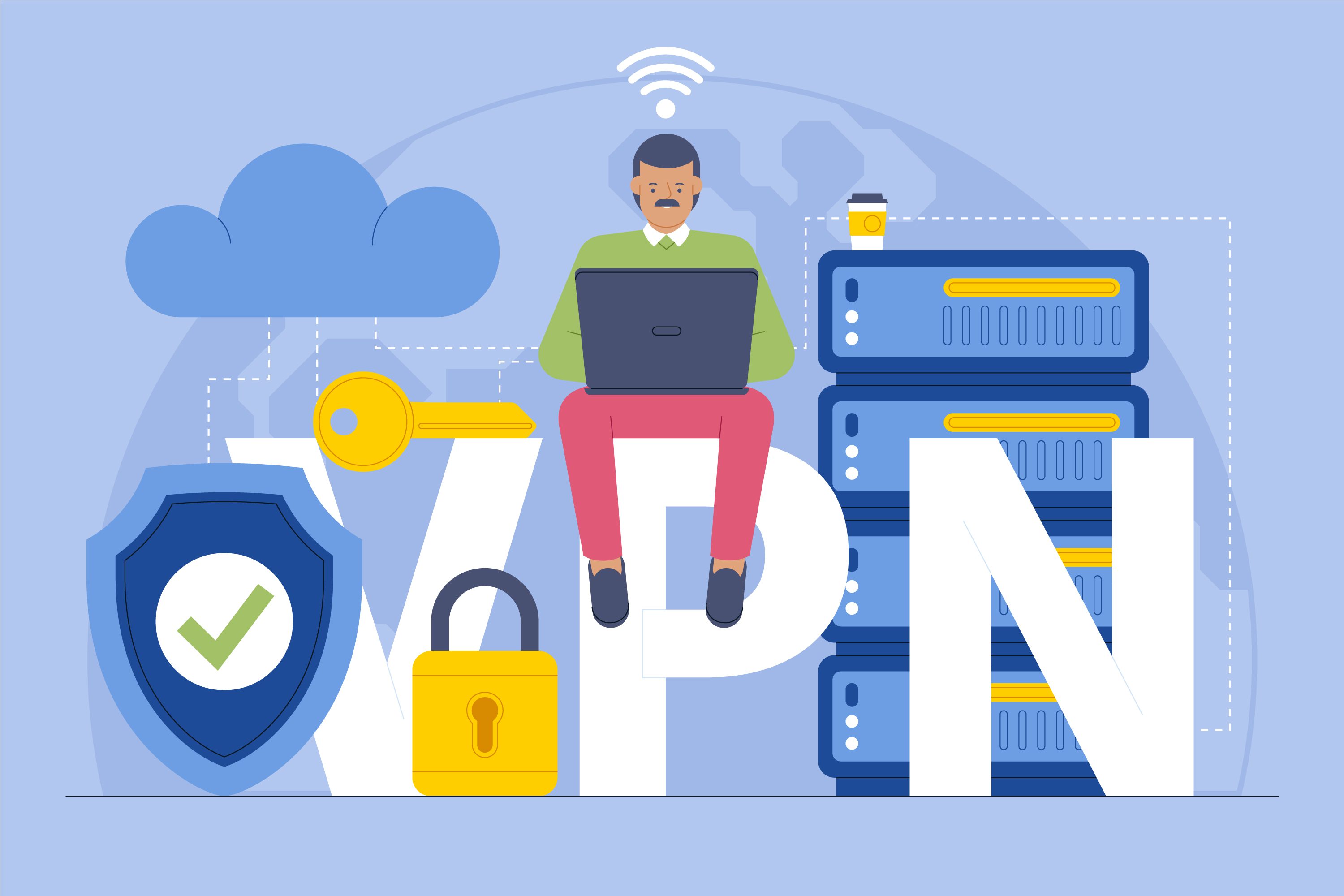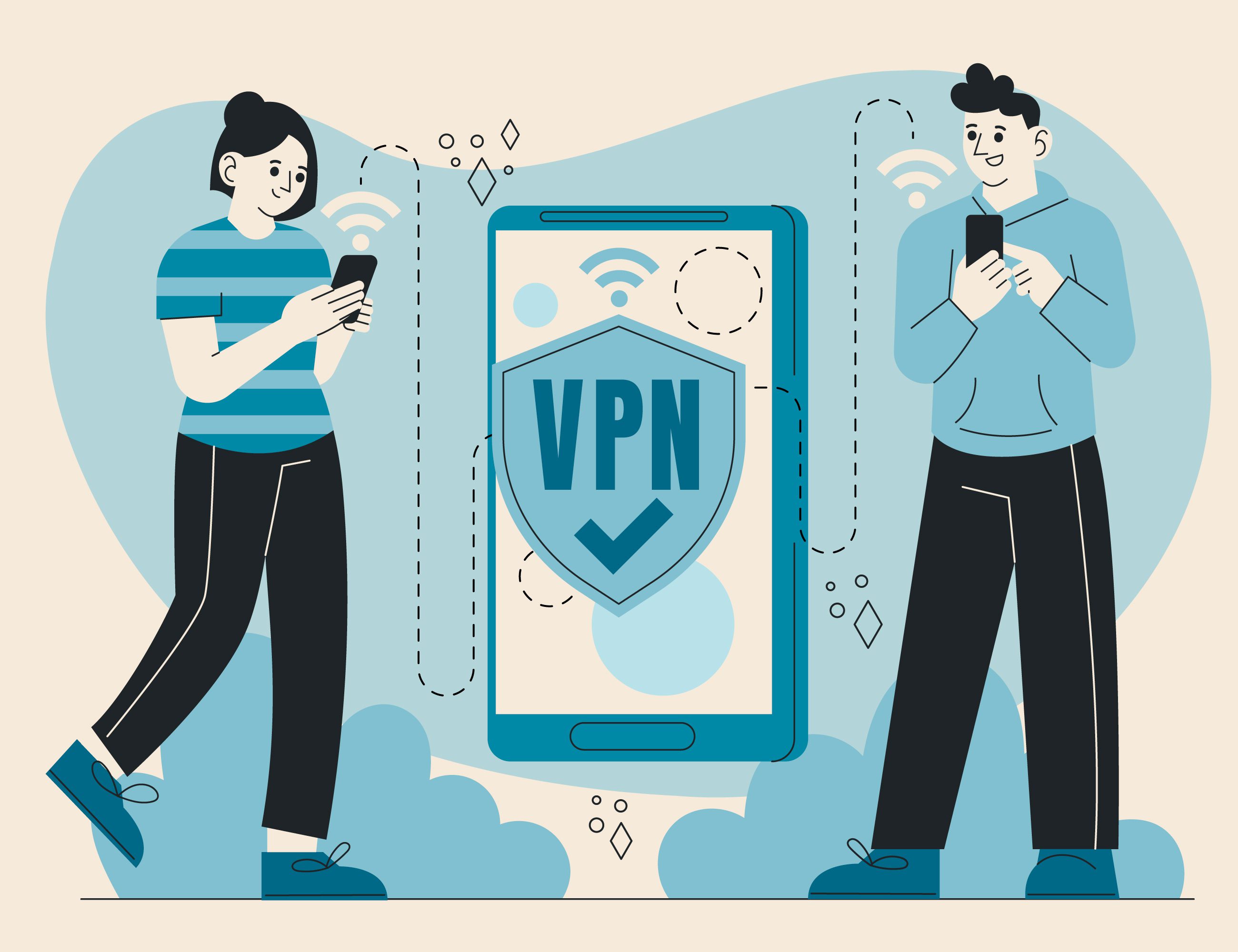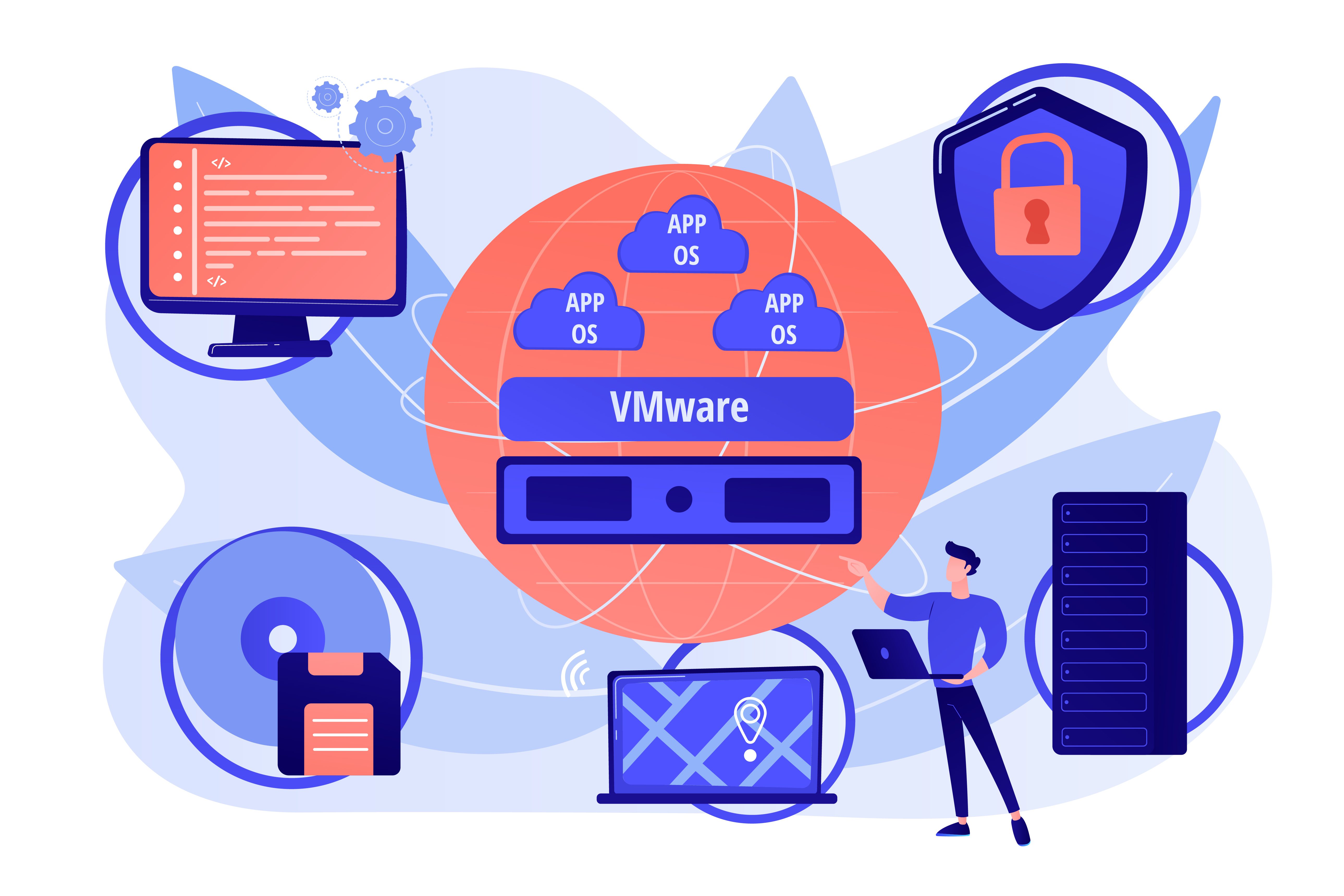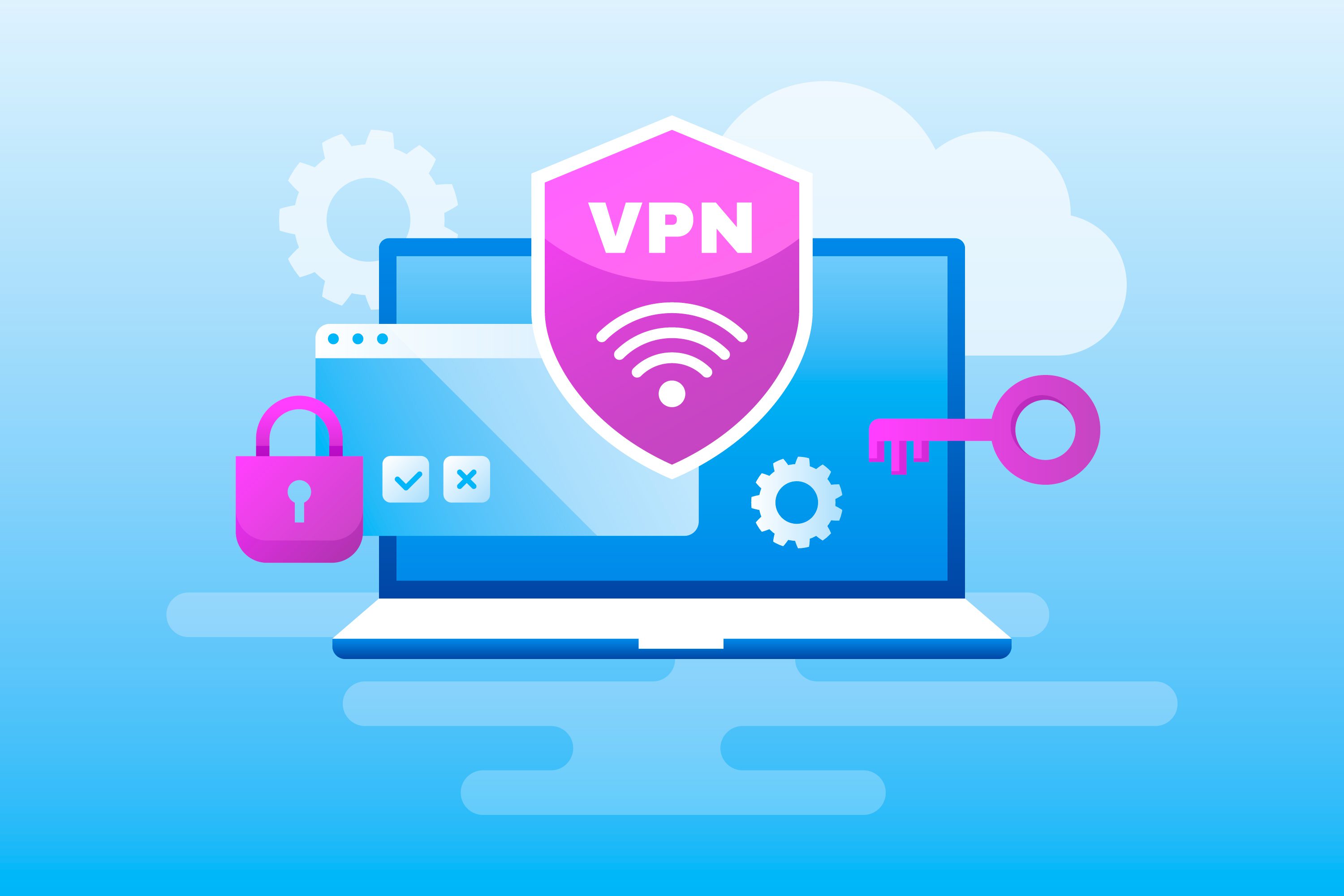Picture Supply: freepik
How can you determine the effectiveness of your VPN in concealing your identity?
There are several crucial tests to assess the effectiveness of a VPN:
- DNS Leak Test
- IP Address Leak Test
- WebRTC Leak Test
- VPN Speed Test
- Malware Tests (usually pertinent for free VPNs)
DNS converts domain names into corresponding IP addresses for browsing, and without a VPN, ISPs can potentially view and share your browsing data. While a VPN encrypts and secures this data, DNS leaks can expose it to ISPs. Regularly conducting VPN leak tests, such as those provided by dnsleaktest.com, is recommended to ensure privacy.
It’s important to note that DNS leak tests reveal your ISP’s IP and location, not your personal IP. Repeated leaks indicate the necessity of switching to a more reliable VPN provider for enhanced online identity protection.
Similar to DNS leaks, IP leaks can disclose a user’s true identity, occurring in both IPv4 and IPv6, particularly during reconnections after a lost connection. Premium VPNs equipped with a kill switch prevent this by disconnecting the internet when it’s insecure. Checking for leaks at IPv6-test.com is advised.
Frequent IP leaks, especially with VPNs lacking a kill switch, signal the need to transition to a more dependable VPN service for superior online identity protection.
WebRTC, utilized in popular browsers for real-time communication like voice/video calls and P2P sharing, can potentially expose a user’s true IP address during leaks through the WebRTC API. To prevent leaks, users can disable WebRTC in browser settings or use a VPN, though not all VPNs guarantee protection against WebRTC leaks.
To assess WebRTC leaks, users can disconnect their VPN, note their IP, close and reopen the browser with the VPN active, and compare the IP addresses. A change in IP indicates no leak, while the same IP suggests a WebRTC leak. Regularly conducting these tests ensures a VPN’s efficacy in maintaining user privacy and security.

Picture Supply: Freepik
In the ever-evolving digital landscape, the use of Virtual Private Networks (VPNs) has become increasingly prevalent as individuals seek to secure their online presence. However, amidst the growing popularity, various misconceptions and myths about VPNs have surfaced. This blog aims to debunk common VPN myths, unraveling the truth with a focus on NordVPN, a leading player in the VPN industry.
Myth 1: VPNs Offer Complete Anonymity
One prevalent misconception is that using a VPN guarantees absolute anonymity online. The truth is that while VPNs enhance enhance safeguard privacy and security by encrypting your internet traffic, ensuring that your sensitive data remains protected do not provide complete anonymity. NordVPN, like other reputable VPNs, acknowledges this fact and emphasizes the importance of combining VPN usage with other privacy best practices.
Myth 2: VPNs Slow Down Internet Speeds
Another common myth revolves around the idea that using a VPN inevitably leads to slower internet speeds. In reality, while some VPNs may have a minimal impact on speed due to factors like server location and encryption, modern VPN services, including NordVPN, are designed to minimize this effect. NordVPN invests in high-performance servers to provide users with fast and reliable connections.
Myth 3: VPNs are Only for Tech-Savvy Users
A persistent myth suggests that VPNs are complex tools reserved for tech-savvy individuals. NordVPN debunked this notion by prioritizing user-friendly interfaces and straightforward setup processes. With NordVPN’s intuitive design, even users with limited technical expertise can easily navigate and benefit from the service.
Myth 4: Free VPNs Are as Effective as Paid Ones
The belief that free VPNs offer the same level of security and features as their paid counterparts is a common misconception. NordVPN emphasizes the importance of investing in a reputable service, as free VPNs often come with limitations, such as data caps, slower speeds, and potential privacy concerns. NordVPN’s commitment to user privacy and security sets it apart in the crowded VPN landscape.

Picture Supply: Freepik
Myth 5: VPNs are Illegal
Some individuals mistakenly believe that using a VPN is illegal. In reality, VPNs are legal tools used by millions of individuals and businesses worldwide to enhance online security and privacy. NordVPN operates within legal frameworks, adhering to strict privacy policies and complying with local regulations, reinforcing the legitimacy of VPN usage.
Myth 6: VPNs Can Bypass Any Restriction
While VPNs are powerful tools for accessing geo-restricted content and enhancing online privacy, they cannot bypass every form of restriction. Some services and websites employ advanced techniques to detect and block VPN traffic. NordVPN transparently communicates these limitations, ensuring users have realistic expectations about what a VPN can achieve.
Myth 7: All VPNs Are the Same
The misconception that all VPNs are essentially identical undermines the importance of selecting a trustworthy and reputable service. NordVPN distinguishes itself through its commitment to user privacy, a strict no-logs policy, and continuous investment in advanced security features. The diversity in server locations and the quality of service contribute to NordVPN’s standing as a leading VPN provider.
In conclusion, debunking common VPN myths is essential for individuals aiming to make well-informed decisions regarding their online security. NordVPN, as a prominent player in the VPN industry, not only addresses these myths but also provides a reliable and secure service. Understanding the realities of VPN usage, combined with selecting a reputable provider like NordVPN, empowers users to confidently traverse the digital landscape, ensuring privacy, security, and optimal online experiences.
Last modified: February 5, 2024












